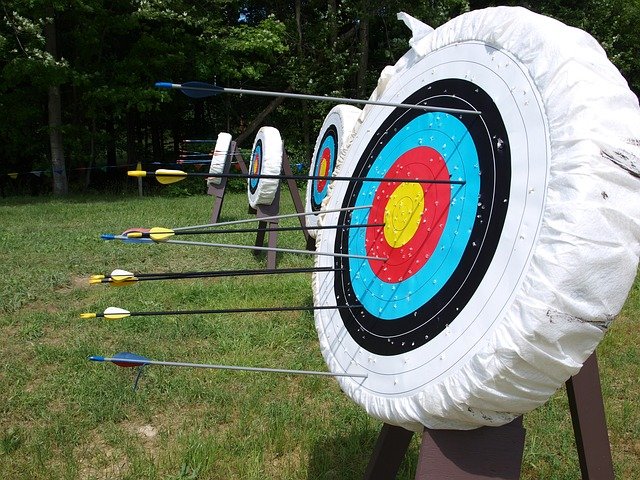Our interpretation of events plays a big part in how we react to them.
For example, someone asks you for a favor. You can either see this as a way to help others, to contribute to others well being.
Or you can see it as a sign of annoyance. To get frustrated.
In Buddhism, there is a saying about two arrows. Picture yourself walking through a forest.
If you are struck by an arrow, it's painful.
But there is a second arrow which brings more pain and suffering.
The first arrow is the bad event itself. You have no control over it.
The second arrow is your reaction to the first one. It's the way you respond to the events in your life.
It doesn't matter if the first arrow was accidental or intentional. You have no control over it. But you will feel the burn of it.
However, the second arrow is purely mental. It's optional.
Every bad event and setback will feel wrong, unfair. But it doesn't mean that you should beat yourself up emotionally for being struck by the first arrow.
We cannot always control the first arrow. However, the second arrow is our reaction to the first. The second arrow is optional.
When you face a setback, or stress about an ongoing problem, you go through these steps:
- The voice in your head start explaining why this setback is happening and it's someone else fault. It makes you angry.
- Or if you were better/smarter, this would not have happened. This makes you sad.
- You start thinking how everything will go wrong, how you can never recover from this. This will last forever.
Most people's problem is not that they are stuck in a downward spiral. The problem is that they are so stuck that they feel sorry for themselves and don't even try to get out.
Even if you made a mistake, remember that things are always changing. This too shall pass.
Let the opinions pass...
Usually, I am a calm and empathetic person. I love to spend time alone. Reading books. Learning something new. Maybe binge watch a netflix series once a month.
But there are times when people try to impose their opinions on me. And that makes me angry. Sometimes frustrated.
They want to enforce that I should believe in God(which I don't, and I don't care if they do).
They want me to have a certain political belief(which I have no interest in).
They want me to live a more luxurious/humble life(depending up on how they spend their money).
I just wonder, if you are truly confident about something, why do you want others to believe in that certain way?
Or is it just that you have doubts about your beliefs? And you want to test your theories and find loopholes about your beliefs.
There were times in my life when I did not care about people. About their opinions. And I performed well. Progressed. Was mostly in a state of confidence.
But whenever I cared too much about other people's opinion, their interventions, it made me angry.
But what's in your control?
You pretty much control nothing. You can't control other people's actions. Or what they say.
You can't control your genetics. You can't decide how much athletic or smart you become. You can try to a point but the foundation is built on genetics.
You pretty much can't control whether you contract cancer, diabetes, alzheimer's or any other serious disease.
You can't control how people feel about you.
But you can build resilience and control your thoughts and your actions.
The Antidote → Build Resilience
People in the history have endured famines, disasters, wars, lived in harsh circumstances.
However, anyone who was resilient, survived.
Resilience is how we respond to the challenges and troubles that we face in our life.
It is the ability to think clearly and critically under huge stress. The ability to use your mind to your advantage when faced with setbacks.
While you can't control any external forces or events, you should be confident that you have control over yourself.
Because most fears are inconsequential. When we face them, their power over us shrinks.
With each discomfort, failure and embarrassment, you will build your resilience.
Just because it is not what you were expecting, doesn't mean it's not everything you need right now. — Paulo Coelho
When you face a set back, you can recognize that setbacks can be an opportunity to learn more. To grow more.
Do something that scares you. And overcome it.
Then move onto the next challenge.
When lifting weights, you push yourself until you can't lift.
Then you adapt. Challenge your last limits again. Endure them. And give better performance next time.
This practice will build your resilience.
When life gets tough, you will feel the pain. But you know that the pain is temporary. It will pass, it is manageable. And you can easily continue to function through it.
Last year was challenging for most people. It affected people's business, career, travel plans, health.
But how did you respond to all those challenges?
Were you resilient? Or did you crumble under the pressure?
